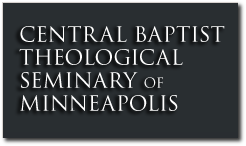Sanctification: A Process or an Experience? Part 1
 By Dr. Dave Burggraff
By Dr. Dave Burggraff
First appeared at SI on July 20, 2005. Original article and discussion thread.
Introduction
As obedient children, not fashioning yourselves according to the former lusts in your ignorance. But as He which hath called you is holy, so be ye holy in all conversation; Because it is written, “Be ye holy; for I am holy.” (1 Pet. 1:14-16)
“I have found in many books many different ways of going to God and many different practices in living the spiritual life. I began to see that this was only confusing me…” (Brother Lawrence, seventeenth-century writer)
Visit your local Barnes & Noble bookstore, scan the shelves of a Christian bookstore in your city, or simply look at the covers of the past year’s Newsweek and Time magazines and you will see a resurgence of interest in “spirituality” within our Western culture and a renewal of interest in “Christian spirituality” amongst Christian believers. This has led Don Carson to point out that, “the current interest in spirituality is both salutary and frightening”—salutary because in its best forms this interest in spirituality is to be preferred over the philosophical materialism that governs the lives of so many people, frightening because “spirituality” has become such an ill-defined, amorphous entity that it covers all kinds of phenomena an earlier generation of Christians would have dismissed as error. Similarly Robert Rakestraw points out, there is a “crying need for a robust, Biblical theology of the Christian life that will refute and replace the plethora of false spiritualities plaguing Church and society.”

 Republished with permission (and unedited) from
Republished with permission (and unedited) from  Dr. Andrew David Nasellli (a.k.a. Andy Naselli), has completed some excellent doctrinal and historical study in the area of sanctification. How do believers grow to be like their Lord? What should they expect the experience of growing in holiness to be like?
Dr. Andrew David Nasellli (a.k.a. Andy Naselli), has completed some excellent doctrinal and historical study in the area of sanctification. How do believers grow to be like their Lord? What should they expect the experience of growing in holiness to be like? Every believer experiences deteriorating attitudes toward God sometimes. Some believers are out of touch with their “inner man” and live with their heads in the spiritual sand. As a result, they may not recognize this tendency within themselves (and that is tragic). Denying reality is an old coping mechanism, but a dishonest one. Perceived or not, the attitude problem within us is real. Here are two issues related to these attitudes.
Every believer experiences deteriorating attitudes toward God sometimes. Some believers are out of touch with their “inner man” and live with their heads in the spiritual sand. As a result, they may not recognize this tendency within themselves (and that is tragic). Denying reality is an old coping mechanism, but a dishonest one. Perceived or not, the attitude problem within us is real. Here are two issues related to these attitudes.
 Reprinted with permission from
Reprinted with permission from 
 There is a great deal of confusion today regarding what is involved in victorious Christian living and what makes it possible. Some of the answers being given out are plainly wrong, and many others are only partially true. It will be in the teaching of the Scriptures that God’s answers will be found. It is not possible in this brief treatment to mention everything which could be said, but a framework will be developed to note God’s wonderful provisions for us in this area of victorious Christian living.
There is a great deal of confusion today regarding what is involved in victorious Christian living and what makes it possible. Some of the answers being given out are plainly wrong, and many others are only partially true. It will be in the teaching of the Scriptures that God’s answers will be found. It is not possible in this brief treatment to mention everything which could be said, but a framework will be developed to note God’s wonderful provisions for us in this area of victorious Christian living.
Discussion